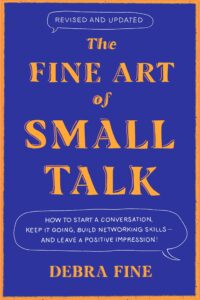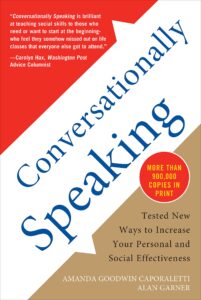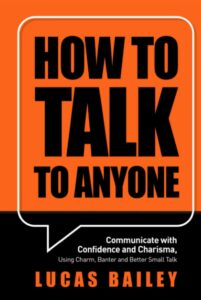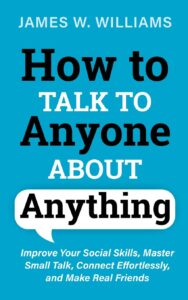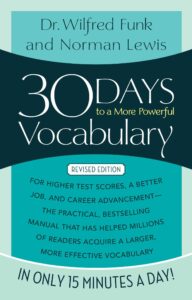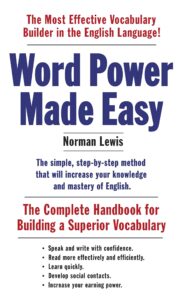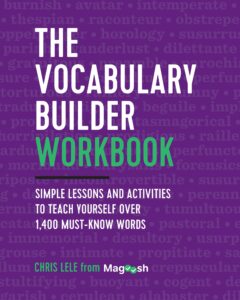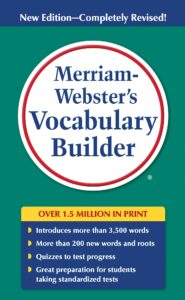
The Art of Communication: How Improving Your Speech Patterns and Vocabulary Can Help You Get Ahead in Business and Socially
The way you speak and the words you use can make a big difference in how successful you are in both your professional and personal life. Whether it’s impressing a potential employer during a job interview or making a great first impression at a social gathering, the way you communicate can have a significant impact on how others perceive you. In this article, we’ll explore how improving your speech patterns and vocabulary can help you get ahead in business as well as socially, and provide tips and techniques for making these improvements.
The Importance of Clear and Confident Speech
Clear and confident speech is essential for making a good impression in both business and social situations. When you speak clearly and confidently, you convey that you are in control, knowledgeable, and trustworthy. This is particularly important in a business setting, where you may be giving presentations, leading meetings, or making pitches to potential clients. In these situations, it’s essential to come across as professional, knowledgeable, and confident.
One way to improve your speech patterns is by focusing on your pronunciation and intonation. Pronouncing words correctly and using the right intonation can make a big difference in how clearly you are understood. For example, if you’re giving a presentation, it’s important to use clear, crisp pronunciation and to speak at a steady pace. This will help your audience to understand and engage with your message more easily.
Another key aspect of clear and confident speech is the use of appropriate body language. This includes maintaining good posture, using gestures to emphasize points, and making eye contact with your audience. These nonverbal cues can help to convey your confidence and authority.
The Power of Vocabulary
In addition to clear and confident speech, the words you use can also have a big impact on how successful you are in both business and social situations. A strong vocabulary can help you to express yourself clearly and accurately, and it can help you come across as knowledgeable, intelligent, and confident. A well-developed vocabulary can also help you to understand and process information more effectively, making it a valuable tool in many aspects of life, including education, business, and personal development.
In a business setting, it’s important to use the right words and phrases to convey your message effectively. For example, if you’re giving a presentation, you’ll want to use technical terms and industry jargon that are specific to your field. This will show that you are knowledgeable and familiar with the topic at hand.
In a social setting, a good vocabulary can also be a useful tool for making a good impression. Being able to use sophisticated words and phrases can help you to come across as intelligent, well-educated, and cultured. This can be particularly useful when meeting new people or trying to impress someone you’re attracted to.
Furthermore, having a well-developed vocabulary can also be beneficial for cognitive development. Studies have shown that people with a larger vocabulary have a better memory and are better able to understand and process information, which can lead to better decision making.
Words and Phrases to Avoid
While it’s important to focus on the words and phrases that you should use, it’s also important to be aware of the words and phrases that you should avoid. Some words and phrases to avoid include:
- Filler words: Filler words, such as “um” and “ah,” can make you come across as uncertain or unprepared. Try to eliminate these filler words from your speech as much as possible.
- Slang or informal language: While slang and informal language may be appropriate in certain situations, it’s important to avoid using it in formal or professional settings. Instead, use formal and professional language that is appropriate for the situation.
- Jargon: Jargon can be confusing and off-putting to people who are not familiar with the specific language of your industry. Instead, try to use language that is easy to understand and accessible to a wide audience.
- Negative words and phrases: Negative words and phrases, such as “I can’t” or “I’m not sure,” can make you come across as uncertain or lacking in confidence. Instead, try to use positive words and phrases that convey your confidence and competence.
There are several techniques that can help you avoid such words and phrases:
- Slow down: Often, we use filler words when we are speaking too quickly and need time to gather our thoughts. Slowing down your speech can help you reduce the use of filler words. It can also provide the opportunity for more deliberate, thoughtful speech instead of just blurting out the first thing that pops into your head.
- Practice mindfulness: Being aware of your speech and listening to yourself can help you identify the words and phrases you should avoid. Once you are aware, you can consciously make an effort to eliminate them from your speech.
- Prepare ahead of time: When you are going to be giving a presentation, speech, or interview, it can be helpful to have a rough outline of what you want to say. This can reduce the need to use filler words because you have already thought through what you want to say.
- Focus on your breath: Taking deep breaths and speaking slowly can help reduce the use of filler words, as well as calm your nerves and improve your overall delivery.
Techniques for Improving Your Speech Patterns and Vocabulary
There are many techniques that you can use to improve your speech patterns and vocabulary. Some of the most effective include:
- Practicing: One of the best ways to improve your speech patterns and vocabulary is by practicing. This can include practicing your pronunciation and intonation, practicing your body language, and practicing your speaking skills in general.
- Reading: Reading is another great way to improve your vocabulary. By reading widely, you’ll be exposed to a wide range of words and phrases that you can then use in your own speech.
- Listening: Listening to others is also an important part of improving your speech patterns and vocabulary. By listening to how others speak, you’ll be able to pick up on new words, phrases, and speech patterns that you can use in your own speech.
- Recording yourself: Recording yourself speaking is another great technique for improving your speech patterns and vocabulary. By listening to yourself, you’ll be able to identify areas that need improvement, such as mumbling, speaking too quickly, or using filler words. This will allow you to focus on specific areas and make necessary adjustments.
- Taking a class or workshop: Taking a class or workshop on public speaking, communication, or language can also be a great way to improve your speech patterns and vocabulary. These classes will often provide you with the opportunity to practice your skills in a supportive environment and receive feedback from experienced instructors.
Vocabulary Websites and Apps
There are many vocabulary building websites, Android apps and iOS apps. Below are a few highly-rated and popular options.

Vocabulary.com: This website is highly rated for its comprehensive vocabulary-building resources. It offers a variety of easy to use games, quizzes, and flashcards to help users learn new words and phrases. https://www.vocabulary.com

Vocabulary Builder – Daily Word: 2 million+ individuals have utilized this vocabulary app for free to study, train, and take quizzes on 1700 English words to enhance their vocabulary. (Android app)

WordUp: This vocabulary building app creates a knowledge map for you. It ranks 25,000 essential English words by usefulness and frequency of use in real-world spoken English, as drawn from multiple movies and TV programs. (Android app and iOS app)

Vocab Genius: This is an app uses cutting-edge cognitive science methods to aid efficient learning of over 1,300 interactive flashcards, encompassing vocabulary and root words. (iOS app)
These are just a few examples of the many vocabulary building apps available for both Android and iOS. It is important to find one that aligns with your specific needs and preferences, and one that you find engaging and fun to use.
You may also want to consider a SAT and GRE test prep app that focuses exclusively on vocabulary, as an additional resource for building a more advanced vocabulary. Such apps may not be the most comprehensive or effective approach, however, and should be used to supplement other vocabulary building methods.
Suggested Reading
There are several books and publications that are recommended for improving your speech and vocabulary. Here are a few recommended books related to building vocabulary for speaking and social situations:
The Charisma Myth: How Anyone Can Master the Art and Science of Personal Magnetism by Olivia Fox Cabane
This book provides an in-depth look at the science of charisma and how to develop it. It covers topics such as body language, vocal tone, and storytelling, and provides practical advice for coming across as confident, approachable, and engaging. It covers a wide range of words and phrases and provides clear explanations and examples of how to use them in context.
The Fine Art of Small Talk: How to Start a Conversation, Keep It Going, Build Networking Skills–and Leave a Positive Impression! by Debra Fine
This book is written to help people in social situations, it covers a wide range of words and phrases that are useful in small talk and provides clear explanations and examples of how to use them in context.
Conversationally Speaking: Tested New Ways to Increase Your Personal and Social Effectiveness by Alan Garner
Unlock the key to effective communication with this newly revised edition. It offers various techniques to enhance your conversation skills, including effective strategies for initiating conversation, asking questions that foster engagement, capturing people’s attention with your words, actively listening to encourage others to speak, avoiding behaviors that may lead to rejection, managing criticism positively, and more. This edition provides a comprehensive approach to improve your communication abilities.
How to Talk to Anyone: Communicate with Confidence and Charisma, Using Charm, Banter and Better Small Talk by Lucas Bailey
With a series of interactive and useful exercises, this guide will teach you how to effortlessly connect with anyone you encounter by developing your banter and creating a sense of camaraderie. You will uncover the techniques of confident body language, active listening, and captivating storytelling. Additionally, you will learn how to handle challenging conversations and turn them into opportunities for bonding and comprehension.
How to Talk to Anyone About Anything: Improve Your Social Skills, Master Small Talk, Connect Effortlessly, and Make Real Friends (Communication Skills Training) by James W. Williams
This book is a great guide to becoming a better communicator and listener.
Vocabulary-specific Books:
These are a few highly-rated books for vocabulary building:
30 Days to a More Powerful Vocabulary by Norman Lewis
By dedicating just 15 minutes a day to the exercises and self-tests in this bestselling guide, countless individuals have been able to enhance their academic success, improve their job abilities and boost their self-esteem. The guide provides a step-by-step approach for increasing your vocabulary through word roots, discovering persuasive words to effectively communicate your ideas and learning new words on a daily basis, it also includes a comprehensive pronunciation guide. Whether you’re a student or looking to expand your vocabulary, this guide allows for a deeper understanding and comprehension of the English language.
Word Power Made Easy: The Complete Handbook for Building a Superior Vocabulary by Norman Lewis
This classic vocabulary-building book has been praised for its clear and easy-to-understand explanations of new words and phrases, as well as its engaging exercises and quizzes. It covers a wide range of words and phrases and is suitable for both beginners and advanced learners.
The Vocabulary Builder Workbook: Simple Lessons and Activities to Teach Yourself Over 1,400 Must-Know Words by Chris Lele
This workbook is designed to help users build their vocabulary through a variety of exercises, quizzes, and activities. It covers a wide range of words and phrases and is suitable for both beginners and advanced learners.
Merriam-Webster’s Vocabulary Builder
This vocabulary builder is from one of the very top publishers of dictionaries. The book features helpful usage examples and quizzes to test your memory.
These are just a few examples of the many books and publications available that can help you improve your speaking skills in social situations. It’s important to find resources that align with your specific needs and goals, and that you find engaging.
In Conclusion
The way you speak and the words you use can have a big impact on how successful you are in both business and social situations. Improving your speech patterns and vocabulary can help you to convey your message more effectively, come across as more knowledgeable and confident, and make a better impression. By focusing on your pronunciation, intonation, and body language, reading widely, listening to others, recording yourself, and taking a class or workshop, you can make real improvements in your speech patterns and vocabulary. And by avoiding filler words, slang, jargon, and negative words and phrases, you can ensure that you are communicating effectively and professionally.



